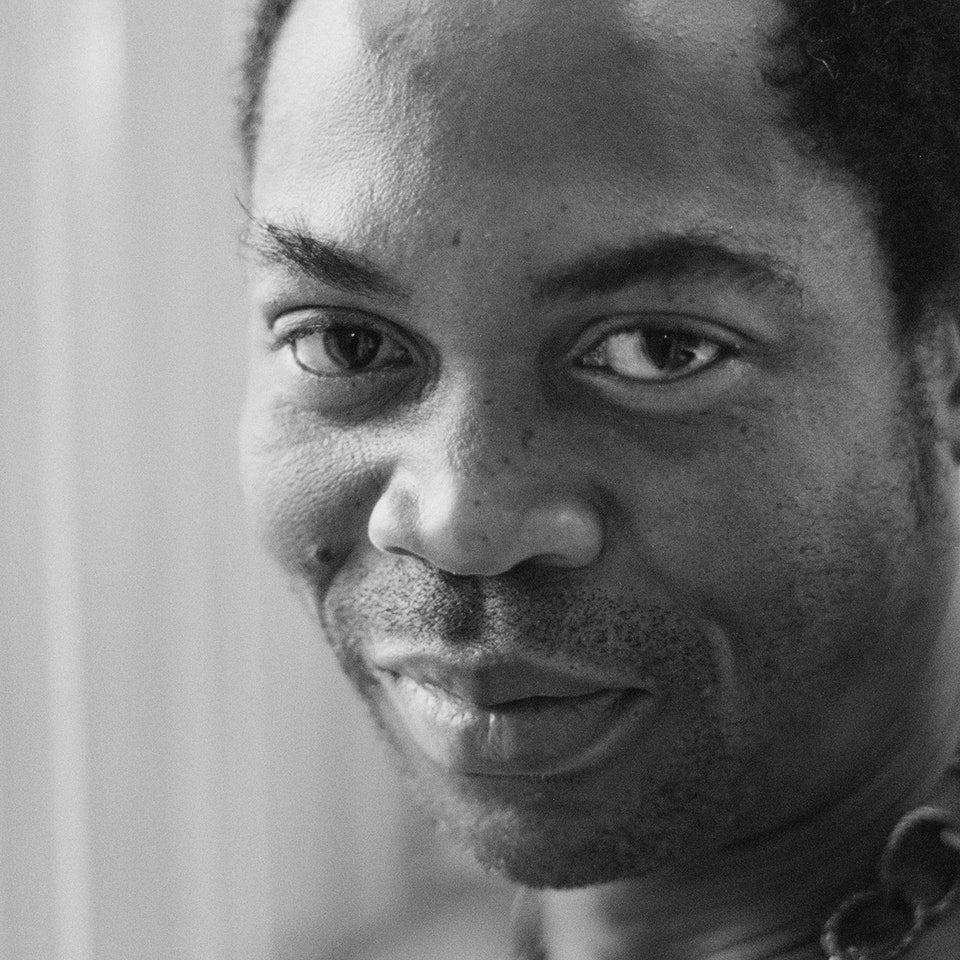
Fela and Afrobeat: The Sound of Nigerian Revolution
Fela Kuti and Afrobeat In Nigeria, a musical revolution was starting, led by Fela Kuti. He mixed jazz, funk, and African rhythms to create Afrobeat. This music became a call for change and freedom. Fela’s songs spoke of unity and fighting against unfairness, touching hearts in Nigeria and beyond.
Fela used Afrobeat to give a voice to the silenced and challenge the powerful. His music stirred people to stand up against tyranny and demand their rights. Afrobeat became the anthem of Nigeria’s fight for freedom and self-rule.

Image Credit: Mike Moore / https://www.gq-magazine.co.uk
Fela’s music was shaped by his background and the many sounds he was influenced by. He combined African traditions with Western styles to create something new and impactful. Through his music, Fela spoke out against injustice and called for change, using Afrobeat as a powerful tool.
Fela Kuti and Afrobeat : The Birth of Afrobeat
The rich musical background of Fela Kuti set the stage for the creation of Afrobeat. His early life and the mix of different musical styles shaped a unique sound. This sound was a strong way to talk about politics and social issues in Nigerian music.
Fela Kuti’s Musical Upbringing
Fela Kuti grew up in a family that valued music and African activism. His mom, Funmilayo Ransome-Kuti, was a well-known activist. His dad, Reverend Israel Oludotun Ransome-Kuti, was a church teacher and musician. This mix of influences helped shape Fela’s musical path, changing Afrobeat forever.
Influences and Fusion of Styles
Fela’s musical journey was a blend of many styles, including Nigerian rhythms, American jazz, and more. He learned music in the 1950s at the Trinity College of Music in London. He became part of the city’s lively music scene.
Fela mixed these styles together in a unique way. He created Afrobeat, a genre that combined Nigerian beats, jazz, pan-Africanism, and Yoruba music. This new sound made Fela a key musical innovator of the 20th century.

| Fela Kuti’s Musical Influences | Key Characteristics of Afrobeat |
|---|---|
| Traditional Nigerian rhythmsAmerican jazzYoruba musicPan-African activism | Rhythmic complexityImprovisational spiritPolitical consciousnessInfectious energy |
“Fela’s music was a reflection of his deep-rooted commitment to social and political change in Africa. Afrobeat became a powerful tool for challenging oppression and amplifying the voices of the marginalized.”
Fela Kuti and Afrobeat: A Powerful Protest Movement
Fela Kuti’s music became a strong voice for protest. It supported the fight for Nigerian freedom and unity across Africa. His songs touched many, turning his music into a call for change against the military rule.
Fela mixed traditional Nigerian music with jazz, funk, and chants. This created a unique sound that drew people in. But his music was more than just songs. It was a way to speak out against corruption, police violence, and the quest for true Nigerian independence.
Songs like “Zombie” and “Sorrow Tears and Blood” spoke against the military’s harsh rule. They highlighted the government’s misuse of power and echoed the people’s anger. Fela’s strong support for change and unity made him a beacon of resistance. He inspired many musicians and activists.
“Music is the weapon of the future.” – Fela Kuti
Fela started the Kalakuta Republic in Lagos, a place for art and politics. It attracted musicians, poets, and thinkers who wanted a free and fair Nigeria. This commune was a bold statement against government control, showing Fela’s faith in art to spark change.
Afrobeat’s impact wasn’t just in Nigeria. It reached people in Africa and worldwide fighting for freedom. Fela’s music and his bold stance motivated a new wave of activists and musicians. They keep his spirit of revolution alive.
Fela Kuti’s Afrobeat was a key force in the fight for Nigerian freedom and African unity. Through his songs, he spoke for those without a voice. He challenged the norm and encouraged others to fight for a fairer world.
Fela Kuti and Afrobeat : The Revolutionary Kalakuta Republic
Fela Kuti’s heart was in the Kalakuta Republic, his own commune. It was a place of political and artistic resistance against the Nigerian government. He used it to challenge the authorities and spread his message of fela, afrobeat, and pan-Africanism.
Defying Oppression Through Music
In the Kalakuta Republic, Fela and Afrika 70 made some of their strongest protest songs. These songs were a way to speak for the people, criticizing the government and pushing for political activism. Fela’s bold lyrics and afrobeat sound called people to fight against injustice.
The Raid and Fela’s Resilience
The Nigerian government saw the Kalakuta Republic as a threat. In 1977, they attacked it brutally. Fela and his family were beaten, and the commune was destroyed. But Fela didn’t give up. He released “Coffin for Head of State,” a strong criticism of the government, proving he was a true revolutionary in the afrobeat scene.
“I no be goat, I no be cow, I be human being.”
– Fela Kuti
Fela’s strong beliefs and his music that challenged the powers made him a pioneer in fela and afrobeat. The Kalakuta Republic was a symbol of resistance. It showed how art can fight against oppression and bring about change.

Afrobeat’s Global Impact
Fela Kuti’s music has spread far beyond Nigeria, touching the hearts of musicians all over the world. His unique sound, with its complex rhythms and strong messages, has changed the music scene globally. It has influenced many artists and music styles.
Inspiring Generations of Musicians
Fela Kuti changed the game with his afrobeat, afro-pop, and Nigerian music. He mixed traditional African beats with jazz, funk, and politics. This mix spoke to musicians everywhere.
Many artists have been inspired by Fela’s work. They’ve taken his sound and made it their own. From lively afro-pop to experimental world music, Afrobeat’s spirit lives on.
- Seun Kuti, Fela’s son, keeps his father’s legacy alive with the Egypt 80 band.
- Burna Boy has mixed Afrobeat with modern Nigerian music, winning Grammys along the way.
- Wizkid and Davido have made afro-pop popular again, sharing Afrobeat with the world.
Fela Kuti’s life and music have become legendary. They’ve inspired not just musicians but also activists and filmmakers. His music shows the power of music to spark change and speak for those unheard.
“Fela’s music was the soundtrack to a revolution. His bold, unapologetic stance against injustice and his commitment to empowering the oppressed have left an indelible mark on the global music landscape.”
| Artist | Influence of Afrobeat | Pioneering Work |
|---|---|---|
| Seun Kuti | Continuing the Afrobeat legacy | Leading the Egypt 80 band, championing the Afrobeat movement |
| Burna Boy | Blending Afrobeat with contemporary Nigerian music styles | Grammy-winning artist, captivating global audiences |
| Wizkid, Davido | Solidifying the global appeal of the Afrobeat sound | Rising Afro-pop artists, introducing Afrobeat to new generations |
Conclusion
Fela Kuti and Afrobeat have made a lasting impact. His music and activism changed Nigerian culture. They inspired many musicians and activists.
Fela stood up against government corruption and fought for Nigerian rights. His music lives on, influencing many artists. From the 21st century Afrobeat revival to today’s diverse musicians, his sound is everywhere.
Today, Fela’s message is still important as we face political and social challenges. His music shows how powerful music can be. Fela Kuti is a key figure in Nigerian music history, thanks to his commitment to truth and justice.
FAQ
What is Afrobeat, and how did it emerge?
Afrobeat started in Nigeria and mixes jazz, funk, and African rhythms. Fela Kuti, a legendary musician, created this sound. He used it to speak out against political and social issues.
Who was Fela Kuti, and what was his role in the Afrobeat movement?
Fela Kuti was a Nigerian musician and activist. He’s known as the father of Afrobeat. His music fought against the military rule and pushed for Nigerian freedom and unity with Africa.
How did Fela Kuti’s musical upbringing and influences shape the development of Afrobeat?
Fela Kuti’s music journey was rich and varied. He learned classical music and was influenced by West African and American jazz and funk. These influences blended into the unique sound of Afrobeat.
How did Fela and Afrobeat become a powerful protest movement against political oppression in Nigeria?
Fela’s songs and live shows spoke out against political corruption and social wrongs. They inspired many and became a call to fight against the military rule in Nigeria.
What was the significance of the Kalakuta Republic, and how did it shape Fela’s revolutionary vision?
The Kalakuta Republic was Fela’s community for resistance through art and politics. It showed his bold stance against government control. The attack on Kalakuta made Fela even more determined to spread his message of change.
What is the global impact of Afrobeat, and how has it influenced music around the world?
Afrobeat has changed music worldwide, inspiring many artists. Fela Kuti’s unique sound and message have reached fans everywhere. This has made Afrobeat a key part of global music.


